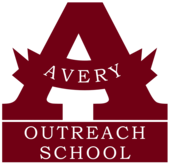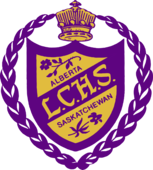Administrative Procedure 163
Use and Possession of Alcohol and Drugs
Background
The Lloydminster Public School Division has an educational and societal responsibility to prohibit the employee use or possession of alcohol and drugs at all buildings and property owned by the Lloydminster Public School Division.
The Lloydminster Public School Division is also committed to the health and safety of its employees, students, environment, and the public. The use of drugs and alcohol can create unacceptable safety risks to everyone at the workplace.
Employees have the right to work and students have the right to be educated in an environment free of substance abuse and with persons free from the effects of drugs or alcohol. Drugs and alcohol are hazards to the school environment and to the credibility and reputation of the Lloydminster Public School Division.
Procedures
- At work or while on school premises or at school sponsored events, including during breaks
which may be paid or unpaid, employees shall not:- Use, consume, possess, distribute, offer for sale, or sell alcohol, tobacco, cannabis,
illegal drugs, illegal drug paraphernalia, prescribed drugs for which the employee
does not have a prescription or prescribed drugs which may cause impairment; - Be impaired or under the influence or be unfit for work due to drugs, alcohol, or
other substances which may be illegal or cause impairment; - Be impaired or under the influence while operating a Lloydminster Public School
Division vehicle or their personal vehicle for division
related purposes; - Have a strong odour on their person of alcohol or cannabis.
- Employees are expected to demonstrate reasonable and responsible use of alcohol or
cannabis at Lloydminster Public School Division sponsored events, or at
social gatherings or events hosted by other organizations when the employee is
representing the Lloydminster Public School Division. - Use of alcohol, tobacco, or cannabis on school property is strictly prohibited
and such prohibition must be included in any contract or agreement for the use
of school premises by any outside parties.
- Use, consume, possess, distribute, offer for sale, or sell alcohol, tobacco, cannabis,
- Safety Considerations
- Employees who report to work under the influence or are determined to be under the
influence while at work will be sent home via safe transportation with further
follow up required.
- Employees who report to work under the influence or are determined to be under the
- Disciplinary Action
- Violation of this Administrative Procedure will lead to disciplinary action up to
and including possible termination of the contract of employment.
- Violation of this Administrative Procedure will lead to disciplinary action up to
- Responsibility of Employee
- An employee found guilty of driving while under the influence of alcohol or
performance inhibiting drugs while on Lloydminster Public School Division
business shall be responsible for all related costs.
- An employee found guilty of driving while under the influence of alcohol or
- Follow Up After Disciplinary Action
- At the sole discretion of the Lloydminster Public School Division, an
employee who is subject to discipline for a breach of this Administrative
Procedure may be required by the employer to:- continue with counseling as recommended by a physician or addictions counselor;
- provide updates from the employee’s physician regarding treatment on a predetermined schedule.;
- provide correspondence from the treating physician that the employee can return to work and safely perform the required duties; and,
- comply with return to work alcohol and/or drug testing, if appropriate;.
- At the sole discretion of the Lloydminster Public School Division, an
- Every employee shall immediately disclose to the employer if they have been prescribed the use of any prescription drug which may have the potential to cause impairment.
- Possession or use of prescription drugs that may cause impairment may be allowed if required
to accommodate an employee with a disability as defined by the Saskatchewan Human Rights Code. - In order to determine if an accommodation is required, the employee shall provide
to the employer a medical report from the employee’s doctor setting out:- the medical restrictions which require the use of the prescription medication during
work hours; - the details of the prescription including the following:
- whether or not the prescription drug must be taken during working hours or so close before working hours that impairment would be present during working hours;
- the name and dosage of the prescription drug that must be taken during working hours;
- the specific method by which the prescription drug will be administered, ie: oral, injection, smoking, or vaping;
- the length of time after taking the prescription drug that impairment may persist; and,
- the expected duration the prescription drug will need to be taken by the employee.
- the medical restrictions which require the use of the prescription medication during
- The employee must provide updates to the employer in the event of any changes to the medical information.
- Upon receiving the required medical information from the employee, the employer shall determine what, if any accommodation is required.
- As part of an accommodation plan, the employer will set out the requirements for
the possession, use and storage, and security of the prescription drug and any associated
equipment while on school property. - Any prescribed drug allowed as part of an accommodation plan must be used solely for the
intended purpose as currently prescribed by the employee’s physician and must
be used solely by the employee for whom it has been prescribed. - Employees suffering from an alcohol or drug addiction are strongly encouraged to seek medical treatment and rehabilitation.
- Employees are encouraged to utilize the division Employee Family Assistance Program (EFAP) or community programs before the problem interferes with job performance.
- The job security or promotion of an employee will not be jeopardized by requesting counselling, however, the employee is expected to perform all required duties in a competent manner.
- Any employee who is addicted to alcohol or drugs, whether prescription or non-prescription, shall immediately inform the employer if there is any possibility that their addiction may have an impact on the workplace or their employment.
- The employee is not required to provide the employer with a diagnosis but shall provide to the employer a medical report indicating any medical restrictions that may exist.
- The responsibility for correcting unsatisfactory job performance or behavior resulting from alcohol or drugs remains with the employee.
- Employees may be granted a leave of absence as part of an accommodation plan to participate in a drug or alcohol addiction rehabilitation program.
- The employee shall supply to the employer a medical report from the employee’s doctor indicating:
- the medical restrictions that require an absence from work; and,
- the expected length of time the employee will be absent from work. The leave of absence shall be taken as sick leave to the extent that the employee has sick leave available, and the remaining time required for the leave shall be unpaid sick leave.
- The employee shall supply to the employer a medical report from the employee’s doctor indicating:
- Information concerning an employee’s involvement in a treatment program or with treatment agencies will be held in the strictest confidence and will not be disclosed except as authorized in writing by the employee, as required by law, or where there is a serious and imminent risk to the health or safety of the employee.
Definitions
Addiction - is defined as a compulsive substance use despite harmful consequence; intense focus
on using a certain substance such as alcohol or drugs to the point that it takes over a
person’s life. People who are addicted keep using alcohol or a drug even though they
know it will cause problems. Addiction is a disability and must be diagnosed by a
medical professional.
Illegal Drugs - fall into two (2) categories: the first category is comprised of those drugs that are
illegal to possess, sell, and consume. The second category includes those drugs
that are legal to possess, sell, and consume when prescribed by a physician, but
are then misused by the person to whom the drugs have been prescribed, or are
used by individuals not under a prescribing doctor’s care, and who may have
obtained the drugs by illegal means.
Impairment - is defined as: the inability to perform essential job functions and interact safely and
effectively with others.
Reference
Section 85, 87, Education Act, 1995
Local Authority Freedom of Information and Protection of Privacy Act Collective Agreement
Revised
August 2023





























